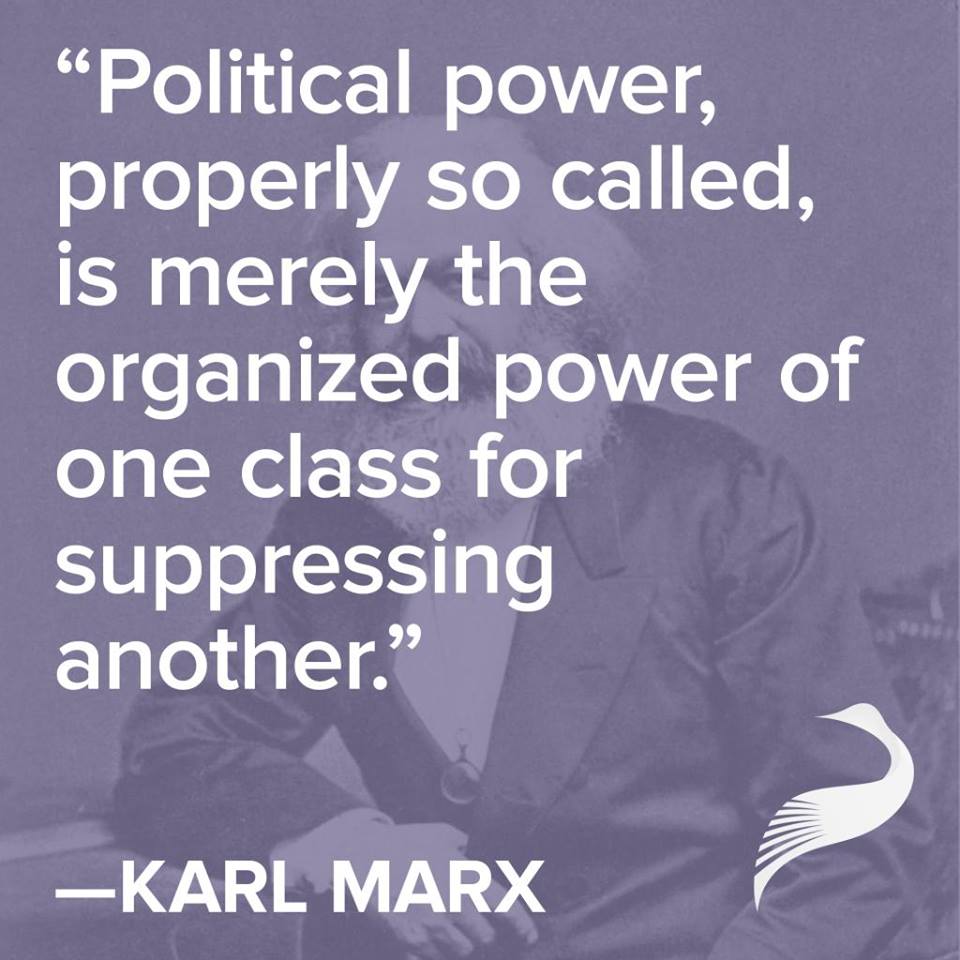- Get link
- X
- Other Apps
What about caste, creed, religion- Asfandyar Wazir different classes have different perspective on it..there is a difference between god of the poor and god of the rich....at least they understand it differently...class power organizes itself around class consciousness
- Amnah Khalid Yes but some societies are classified on race like Malaysia and class becomes a subset.
- Amnah Khalid In Islam too its Darul Harb. Darul Islam distinction and other religions too classify like caste is legalised discrimination sanctified by religion from a western perspective but a hierarchy of organizing society in Hinduism.
- Asfandyar Wazir class is always there no matter how a society is classified. what matters is class consciousness. even in a deeply religious communal society there are exists a certain class who doimnates whether it is a preacher or a capitalist....and there is always another class, the have not class, which must be there in malaysia too even if the society is classified on race
- Amnah Khalid So long as society is defined monetarily class matters but not all societies are categorised by it even today so said race is dominant over class in Malaysia as privileges , resources are based on it , making class a subset of race as within it there can be poor n rich.
- Asfandyar Wazir yes i do agree about the race factor but for marx these factor are just different tools applied by the dominant against the dominated....if there are poor people even in the privileged race it means classes do matter. the mode of production ultimately crystallizes other factor too...in pak the migrant community ascendancy to power crystalized ethnic positions...the malaysian racial identity must have a material side too (historically speaking)...
- Amnah Khalid What gives the power to the dominant claim? In Malaysia it is the son of soil or original inhabitant and to overcome class difference from Chinese ( business) race reservation was used in jobs, property, business education etc to overcome the disparity.
- Amnah Khalid Likewise we see race played a greater role over religion- creation of Bangladesh 1971 where recognition of language was first used and later the famine highlighted the disparity of resources.
- Asfandyar Wazir so dosenot being son of the soil fall in the category of what althusser termed as the 'social relations of prodcution'...
- Asfandyar Wazir yes it is an instrumentalist position.....beneath the language controversy and the famine was structural imbalances through which W Pakistan was draining Bangladesh's economy....Bengla symbols were means to an end...and that end was their subjugation by wpal
- Amnah Khalid Social relation of production is different from claim as original inhabitant which is a historical legal claim not a social. (By "relations of production", Marx and Engels meant the sum total of social relationships that people must enter into, in order to survive, to produce and reproduce their means of life. As people must enter into these social relationships, i.e. because participation in them is not voluntary, the totality of these relationships constitute a relatively stable and permanent structure, the "economic structure".
- Amnah Khalid UN on Indigenous peoples Erica-Irene Daes in 1995 stated that a definition was unnecessary because "historically, indigenous peoples have suffered, from definitions imposed by others" [16] Indigenous representatives also on several occasions have expressed the view before the Working Group that
...a definition of the concept of 'indigenous people' is not necessary or desirable. They have stressed the importance of self-determination as an essential component of any definition which might be elaborated by the United Nations System. In addition, a number of other elements were noted by indigenous representatives...Above all and of crucial importance is the historical and ancient connection with lands and territories. The Draft Declaration on the Rights of Indigenous Peoples prepared by the Working Group on Indigenous Populations[18] was adopted on the 13 September 2007 by the General Assembly as the United Nations Declaration on the Rights of Indigenous Peoples.Article 33 is used by many national lawmakers in producing indigenous definitions based on
1. Indigenous peoples have the right to determine their own identity or membership in accordance with their customs and traditions. This does not impair the right of indigenous individuals to obtain citizenship of the States in which they live.
2. Indigenous peoples have the right to determine the structures and to select the membership of their institutions in accordance with their own procedures. - Asfandyar Wazir haha i can understan...i was writing my thesis on this topic....as far as i have understood it relations of productions elaborates the relation of the agent with the means of production. now the claim that one is son of the soil automatically define...See More
- Amnah Khalid Although Multiculturalism has failed in the west but the legal historical claim incl treaties of indigenous were never honoured be it with the aborigines ( Australia) or Indians in America or south America, they were simply eliminated (Ref Kymlicka), Colonialism was still better, they survived and overcome in different forms from Black slavery to earliest independent countries like India, Ghana.
- Get link
- X
- Other Apps




Comments
Post a Comment